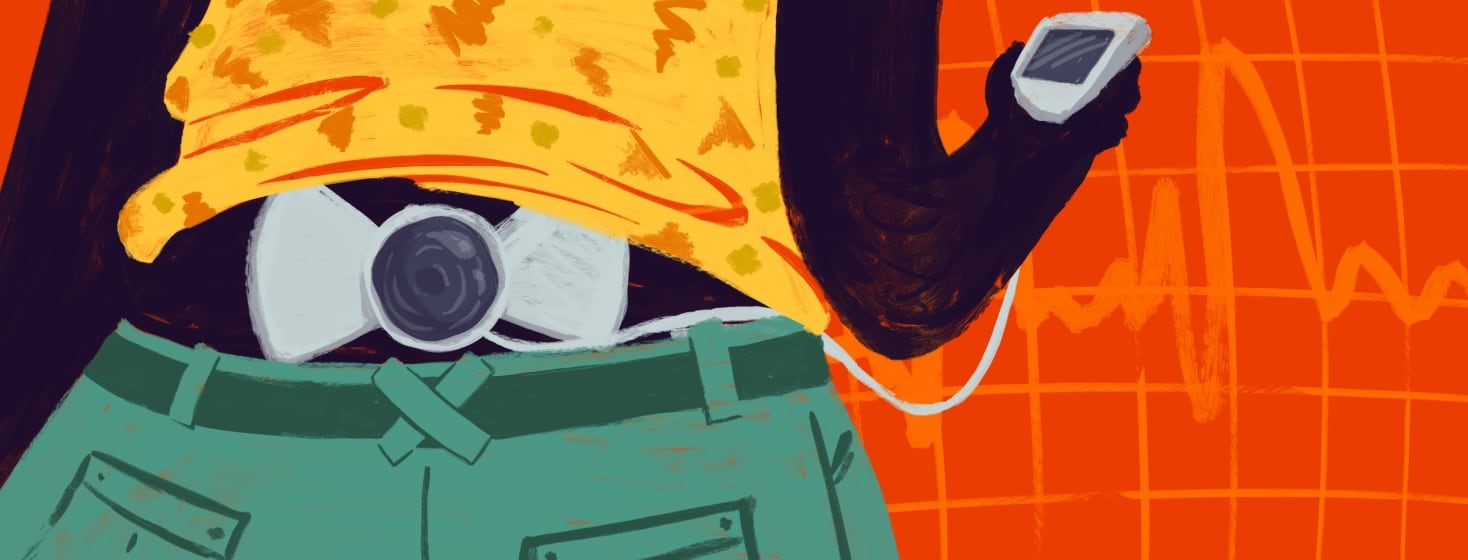TENS Unit for RA Pain
Recently, I wrote an article sharing my over-the-counter toolbox of items that help me manage life with rheumatoid arthritis. One of those items, specifically, garnered a lot of questions and attention. Today I want to talk in-depth about it - a TENS unit.
What is a TENS unit?
A TENS unit is short for transcutaneous electrical nerve stimulation unit. It is a battery-operated, over-the-counter device that can be used to treat pain.
How it works
The TENS unit is used to treat pain. It works by sending small, low-voltage electrical impulses through electrodes that are placed on your skin via adhesive pads.
These impulses flood your nervous system and interrupt your body's natural pain cycle by providing a “relief” sensation by reducing the pain signals transmitted from the spinal cord and the brain.
TENS therapy is admired for its ability to change, or even block, your perception of pain. The electrical impulses sent by the TENS unit also stimulate the body to release endorphins or natural pain relievers.
Symptoms and types of pain that can be supported by a TENS unit include knee pain, neck and back pain, pain caused by endometriosis, sports injuries, and chronic conditions such as arthritis, multiple sclerosis (MS), fibromyalgia, and diabetic neuropathy.1
How a TENS unit can help RA pain
While there are a variety of TENS units available, most of them operate in the same ways. A small(ish) device uses lead wires to connect to adhesive pads called electrodes, which adhere to your skin near the area of pain by reusable gel adhesive.
The unit enables you to control all aspects of your pain relief - from the mode, to the intensity, the frequency, (number of electrical pulses per second - the intended options may vary for acute versus chronic pain) to the duration.
Benefits and drawbacks for chronic pain management
TENS units are non-invasive, non-prescription, non-pharmacological low-risk methods for relieving pain. Using a TENS unit to support your health and reduce your overall pain might also be able to reduce the use of pain medications.1
Additionally, TENS units are rather convenient. They are small, portable, and discrete. They are fairly inexpensive (especially when compared to many pain medications), and are available for purchase online and sometimes in stores.
Most people will generally not experience side effects from the TENS unit therapy. It’s possible that the sensations created by the electrical impulses may feel uncomfortable for some users, which may outweigh the benefits they receive from the device.
If you experience skin redness or irritation from the adhesive electrode pads, there are hypoallergenic pad options available to purchase separately.
My experience
I was first introduced to a TENS unit for chronic pain back in 2013. In fact, it was recommended by a gastroenterologist for my stomach pains, which would later be diagnosed as Crohn's disease.
Back then, the actual device was larger and heavier; the bulky device provided much relief for my abdominal pain. However, when I started using it on my knees and my back, I was pleasantly surprised by its effects!
Over the years, I've owned a variety of TENS units, and I am continually impressed with the way technology and time have improved them. My current device is 4 inches long, 2 inches wide, and 0.5 inches thick. It's so lightweight that I forget it's in my pocket sometimes!
I've found that for me, TENS therapy is most effective when used regularly, and when used before or after heat therapy and gentle stretching.
Important to note
If you’re interested in exploring the aid of a TENS unit to manage your pain, you should speak with your doctor before beginning use.
TENS units are safe for most people. However, areas of use should be specifically discussed with a doctor in individuals who are pregnant, live with epilepsy, have heart problems, deep vein thrombosis (DVT), any hemorrhagic disorder, or have a pacemaker or any type of electrical or metal implant.1

Join the conversation